- ‘Lies, damned lies etc…’ - 13th February 2026
- Missing in action - 12th February 2026
- Travel news again - 11th February 2026
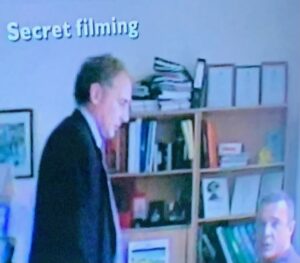
During a 23 year career with the BBC, and 38 years in journalism, (when he was trained to use clear and simple language, avoiding jargon), our Editor Phil Parry, has seen enormous technological changes, and here he outlines some of them, as well as the controversies generally they have provoked around the world, along with the disappearance of a host of bizarre characters he started with.
Earlier he has described how he was assisted in breaking into the South Wales Echo office car when he was a cub reporter, recalled his early career as a journalist, the importance of experience in the job, and made clear that the ‘calls’ to emergency services as well as court cases are central to any media operation.

He has also explored how poorly paid most journalism is when trainee reporters had to live in squalid flats, the vital role of expenses, and about one of his most important stories on the now-scrapped 53 year-old BBC Wales TV Current Affairs series, Week In Week Out (WIWO), which won an award even after it was axed, long after his career really took off.
Phil has explained too how crucial it is actually to speak to people, the virtue of speed as well as accuracy, why knowledge of ‘history’ is vital, how certain material was removed from TV Current Affairs programmes when secret cameras had to be used, and some of those he has interviewed.
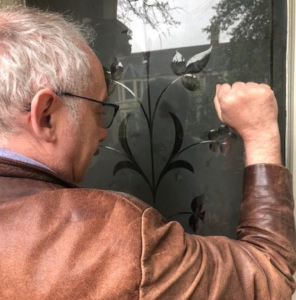
He has disclosed as well why investigative journalism is needed now more than ever although others have different opinions, how the current coronavirus (Covid-19) lockdownis playing havoc with media schedules, and the importance of the hugely lower average age of some political leaders compared with when he started reporting.
As well as the extraordinary characters I met, when I started as a trainee reporter with the evening newspaper in Cardiff, the South Wales Echo (SWE) (then the biggest-selling paper produced in Wales) in 1983, a key change has been in the use of TECHNOLOGY.

In parallel with this, I have witnessed technology generally take over the world, but it has not been without controversy.
There has, for example, been the enormous row over the giant Chinese technology multinational Huawei.
It has faced numerous criticisms for various aspects of its operations, particularly in regards to cybersecurity, intellectual property, and alleged human rights violations.

The company has also been accused of assisting in the mass-detention of Uyghurs in Xinjiang ‘re-education’ camps, and that it has employed forced Uyghur labour in its supply chain.
In Israel too there are whispers about some of the technology which has been developed.
Pegasus (a fearsome bit of spyware developed by the NSO Group) exploits weaknesses in a smartphone’s digital defences, allowing users to eavesdrop on conversations, and control the camera as well as microphone.


It has, though, reportedly been used by authoritarian regimes (see the story about Russia’s on Wednesday) to target activists, journalists, and opposition politicians.
But for me, other technological changes, while also huge, have been BENEFICIAL.
When I started in journalism, every story was written on a typewriter, which was then tipped up to give a reporter space to write down what people said over the phone, in a notebook.

A copy was then made of it (with a ‘black’, or carbon paper, in between), and it was put physically into a wire basket, placed strategically on the News Editor’s desk. The story was always folded in half for the News Editor to have space to scribble on the all-important ‘by-line’, if he (and it always was a ‘he’!) thought it was a job well done.
Now everything is written on a computer, before being sent to the ‘Content Editor’s’ virtual ‘basket’ online. Interviewees are recorded using a smartphone, and pictures of them are also taken that way.
 In the old days to get information about the background to a story, a reporter would have to walk down the corridor to the ‘cuttings library’ and pull out the relevant file. The same mistake would be repeated time after time, as new reporters also did it (and included the error, which was usually an age or address), and THEIR story would then become a cutting!
In the old days to get information about the background to a story, a reporter would have to walk down the corridor to the ‘cuttings library’ and pull out the relevant file. The same mistake would be repeated time after time, as new reporters also did it (and included the error, which was usually an age or address), and THEIR story would then become a cutting!
Now, of course, all the background information that might be needed, is available at the press of a button on the internet, and that is a TREMENDOUS resource.
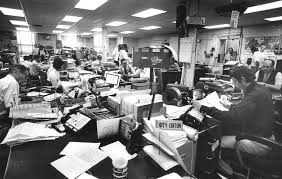
All of this has run alongside the disappearance of an array of weird and wonderful characters during my early days in journalism, and the remarkable events I witnessed in the newsroom.
One of these characters produced excellent copy in the morning, but he couldn’t be relied on in the afternoon because he would have had a few drinks. Another reporter saw him talking to me, and mimed lifting a glass to his mouth behind his back.

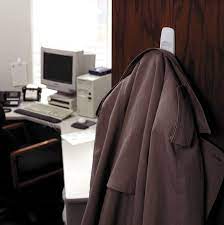
A shambolic figure in the newsroom, again wrote superb copy, and also produced film reviews, where he would worry over every single word.
He told me once, that he had left his previous paper because he didn’t like the way the News Editor hung up his coat! This reporter had supposedly fallen asleep in a chair with a meat pie in his pocket, woke up, found the pie and carried on eating it.
Another correspondent covered Cardiff’s magistrates court (or ‘mags’) in the morning, where accuracy was everything, but in the afternoon (because there was rarely a case to cover) he spent the time squirrelled away in the city’s central library looking at back copies of the paper and preparing ‘Echoes of the Echo’.
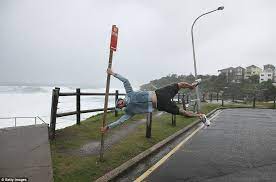
He was known as ‘Mad Jack’, said “Duw (God)” a lot for no apparent reason, and carried everything around in plastic bags. He was allegedly blown over by a freak gust of wind when we were reporting news of a gale which had struck South Wales.
A feature writer, who was known for getting his facts right, worked on my sister newspaper The Western Mail (WM) which was in the same newsroom. He had reputedly fallen asleep DURING an interview with one of his subjects because he was so boring! You know the kind of thing: “I stormed ashore during the war…”. “ZZZZZ.”
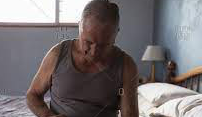
The small South Wales district office where I worked briefly in the mid 80s, was shared, too, with a WM reporter. He used to come in late morning, say “stand by your beds”, make ONE phone call to Cardiff Airport (CA) for a story, then go home again.
What a life I used to think!
Back at the main Cardiff newsroom, a first-class reporter who covered a lot of crime stories was a fairly tall character, and wore a long dark coat. He told me how he was often mistaken for a police officer on the doorstep. He never lied or did it deliberately (which would have been against the law anyway) but he was aware of the mix-up and didn’t disabuse his interviewee because he could get more information that way.
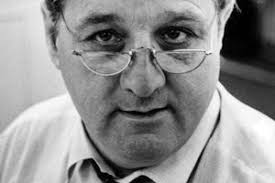
On one famous occasion I watched through the corner of my eye as the News Editor of the paper, Stuart (‘Minto’) Minton, thumped one of those individuals because he was swearing at him in front of his daughter who’d come to pick him up after work on a Friday.
His victim fell at my feet as I sat perched on one of the desks talking to a friend. This astonishing incident happened because the reporter’s expenses had not been signed, but he relied on them, and he would be left without money for the weekend. Screams echoed around the newsroom as people realised what had just happened, and for a middle-class kid straight out of university, used to people being nice to each other, this was eye-opening!

Yet almost as eye-opening has been the changes in journalism brought about by technology.
Let’s hope they are only beneficial, and they don’t become mired in scandals like others around the world have done!
The memories of Phil’s decades long award-winning career in journalism (when technological changes were in their infancy, and there seemed to be MORE characters) as he was gripped by the rare neurological condition, Hereditary Spastic Paraplegia (HSP), have been released in a major book ‘A GOOD STORY’. Order it now!

Publication of another book, however, was refused, because it was to have included names.
Tomorrow – how senior politicians have confided in The Eye that the Welsh Government (WG) may be considering possible plans to follow Scotland in a bizarre scheme of cutting the bottoms off school classroom doors to increase ventilation and combat Covid-19.









